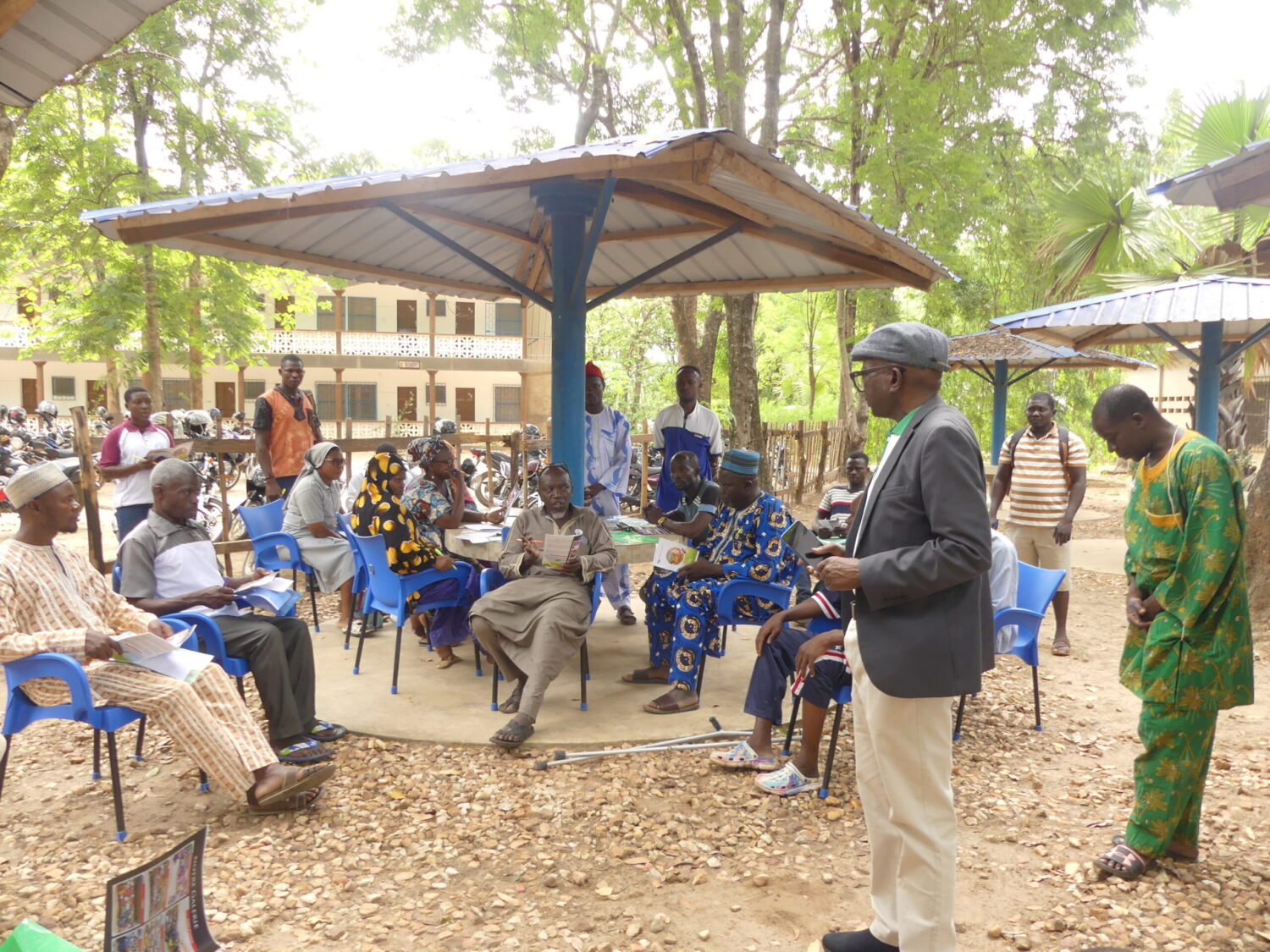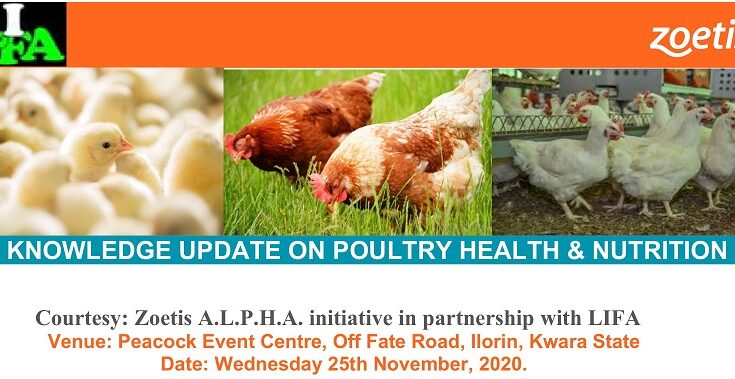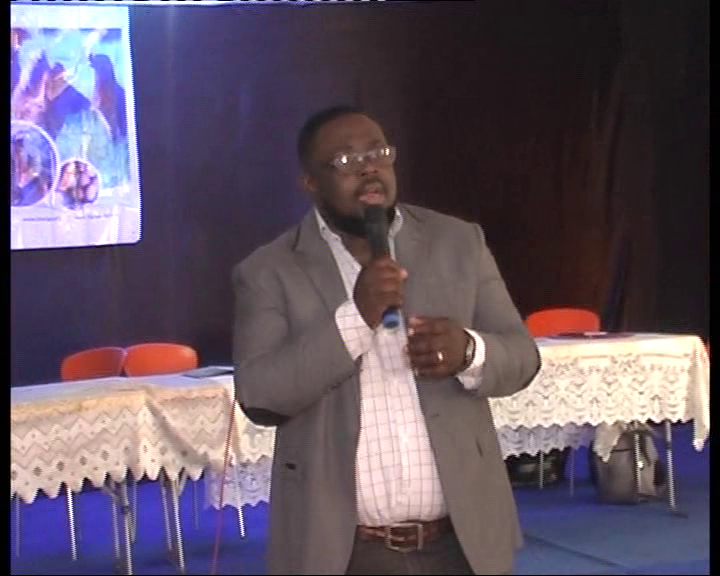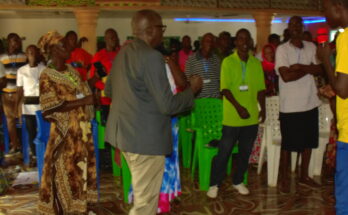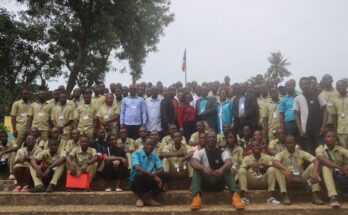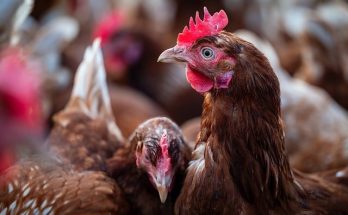The seminar took place on 25th November, 2020 at Peacock event centre, Off Fate road, Ilorin which attracted many professionals from different fields across agriculture and non agricultural sectors. The program recorded an estimate of over 140 participants which include; livestock farmers, veterinarians, animal scientists, students and other professionals.
The knowledge update held in Kwara state was the fourth edition. The first edition kick started in Ibadan on the 17th July, 2019 recorded over 220 participants from different states within the south west. The second edition took place at Abuja; the Central Capital Territory, which recorded over 120 participants within and outside Abuja metropolis. While the third edition was organized at Kano state which attracted over 249 participants.
LIFA/Zoetis Alpha Initiatives through her training program have been able to train and sensitize over 739 poultry farmers in Nigeria given the enormous desire to improve livestock health and positively impact farmer’s livelihood in Sub-Saharan Africa. The knowledge update on poultry health and nutrition, Kwara 2020 was attended by many dignitaries; Mr Joshua Olorungbemi (Zoetis Country Lead), Pastor Adeniyi (PAN Chairman, Kwara chapter), Mallam Hammed Umar (Director of Livestock), Dr Bukola (Rep. Director of Veterinary), among many other dignitaries.
The program commenced at 8:30am and ended at around 2:00pm. Three lectures and a case study were delivered with 30minutes allotted to respective lectures. The seminar started with an opening prayer from the participants followed by a welcome address from Zoetis country lead; Mr Joshua Olorungbemi and the president Livestock Industry Foundation for Africa in person of Dr Stephen Adejoro. Mr Joshua Olorungbemi in his welcome address applauds the impact of LIFA over the years of partnership with Zoetis for her selflessness contribution to the good of the poultry Industry. He emphasised that Zoetis is an animal health company which originated from pfizer animal health of which ALPHA initiatives is African Livestock Productivity and Health Advancement initiatives organized to render support for livestock sector in Sub Africa countries (Nigeria, Uganda, Tanzania, and Ethiopia).
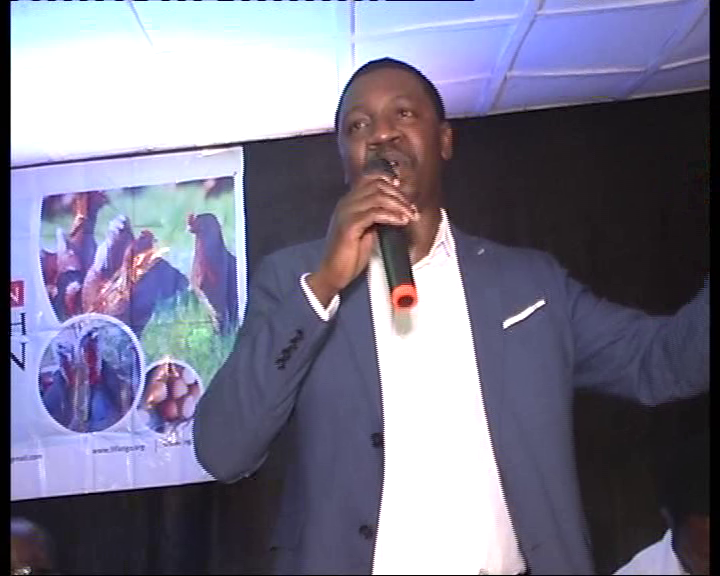
Dr Stephen Adejoro in his welcome address pointed out that without agriculture most countries will never prosper and every country that rely on oil natural resources will end up with a problem such as economic crises and instability. LIFA vision is to help develop food security in South Sahara Africa and this he believes can be achieved through Advocacy, education and knowledge updates. He pointed out that most poultry farmers in Nigeria are just in the second/third generation poultry system. He then asks where the first generation poultry farmers in Nigeria are. What happens to their industry? Why did their industry collapse?
A three-man resource person delivered seasoned lectures which took a wonderful turn. The speakers are; Dr Stephen Adejoro, Dr Niyi Bankole, Dr Adah Ogwuche and a case study on family sustainability moderated by Mrs Adejoro.
The first lecture was delivered by Dr Adah Ogwuche and his lecture presentation was centred on Colibacillosis in Poultry. He explained the epidemiology, aetiology, transmission, clinical signs, differential diagnosis, economic importance, prevention/control and Zoetis approach to prevention/control to Colibacillosis in poultry. He reported that E.coli is a most frequently reported disease and could cause significant economic losses to poultry. In his presentation he gave reasons why farmers should vaccinate for E.coli; reduction of mortality, reduction of lesions, reduction of antibiotics treatment and increase the number of hatching eggs. Dr Adah emphasized that “No antibiotics seven (7) days before and after the application of POULVAC E.COLI and that Acidifiers, chlorine, disinfectants should be removed 48hours before vaccination and 24hours after vaccination”.
The second speaker was Dr Stephen Adejoro. His presentation focused on Climate change; Effect on poultry health and food security in a tropical climate. He enlightened the participants on climate change as the state of atmosphere on a scale of coldness, wetness, dryness, windiness, hotness, cloudiness, hurricanes, glacial formation, volcanic eruption, etc. Dr Adejoro also explained some poultry activities that contribute to climate change; manual disposal, disposal of mortalities, ammonia release and shallow river contamination, among many other activities. In his presentation he reported that the implications of climate change on poultry health can be in the form of; Heat and heat stress, Rainfall and flood, Mycotoxins, immune depression and resistance development, Drought and low yield in poultry productivity. He presented a case study on fowl cholera disease and concluded that it is a chronic disease which occurs in a cycle of 12 weeks starting from age 26 to 28 weeks and therefore recommended that the effective treatment of fowl cholera must be a synergy of chemotherapy and dietary adjustment.
The third speaker was Dr Niyi Bankole. He delivered a lecture on Marek quality assurance and reconstitution. He explained how important is Marek’s disease, type of Marek vaccine; Frozen Marek vaccines and Refrigerated Marek vaccines, the storage and handling, quality control of P.CVI + HVT, and reconstitution. In his presentation he reported that Marek vaccine should be stored in liquid nitrogen, double wall tank with vacuum, neck is the most delicate to avoid hit and nitrogen level should be monitored 2 times/week and recorded.

The last lecture was a case study on poultry farm sustainability which was moderated by Mrs Adejoro (LIFA Vice President). She presented the case study by asking the participants the following questions; why do poultry investors or entrepreneurs in Nigeria or Africa fail in family succession? Who has succeeded the once thriving poultry farms in Nigeria and Africa? What exactly is the problem of poultry industry sustainability in Nigeria and Africa? We always say that poultry business is a lucrative and profitable business, but why does it fail with the investors or before the demise of the investors? The current poultry investors in Nigeria are the third generation investors, yet very educated but how many of them inherited this business from parents? The case study generated lots of responses from the participants which was interactive and educative.
In conclusion, questions and answers were brought to the board and many participants asked various questions related to the lectures and outside the lectures presented by the speakers. Every participant’s questions were answered by each of the speakers. Light refreshments were served while taking the questions and answers section.
The seminar programme ended with a closing remark by the chairman poultry association of Nigeria, Kwara chapter followed by closing prayer. Group photographs were taken while participants received a certificate of participation.
LIFA continues to be proactive in organizing training for farmers and stakeholders towards the aim of improving the livestock industry in Nigeria and South Sahara Africa. We are available for collaborations in areas that may require education, training, advocacy, awareness and policy implementation.

